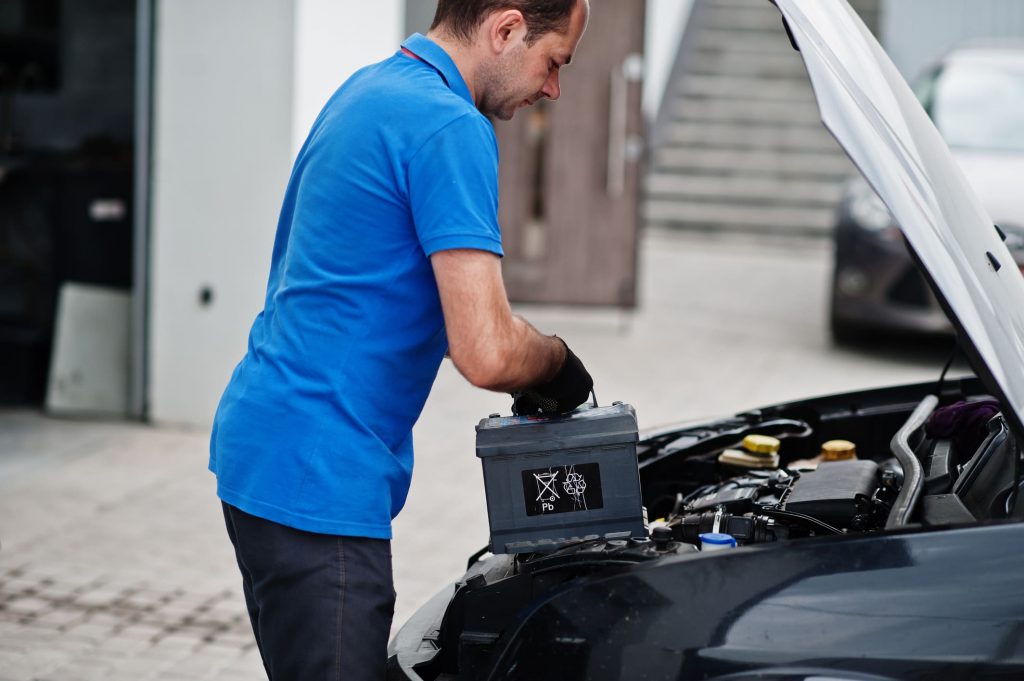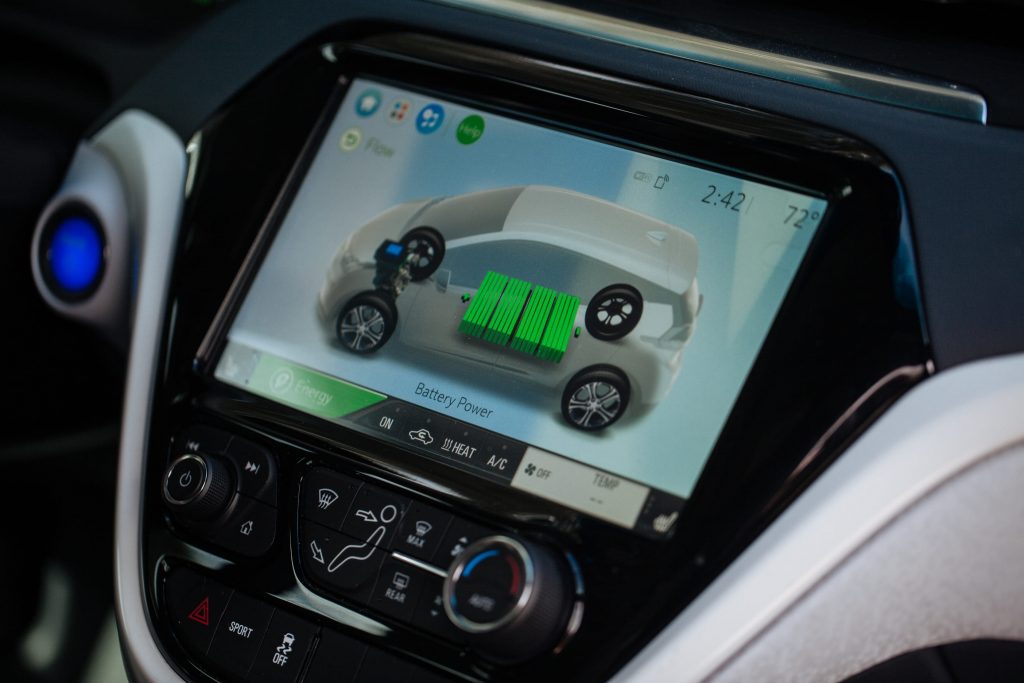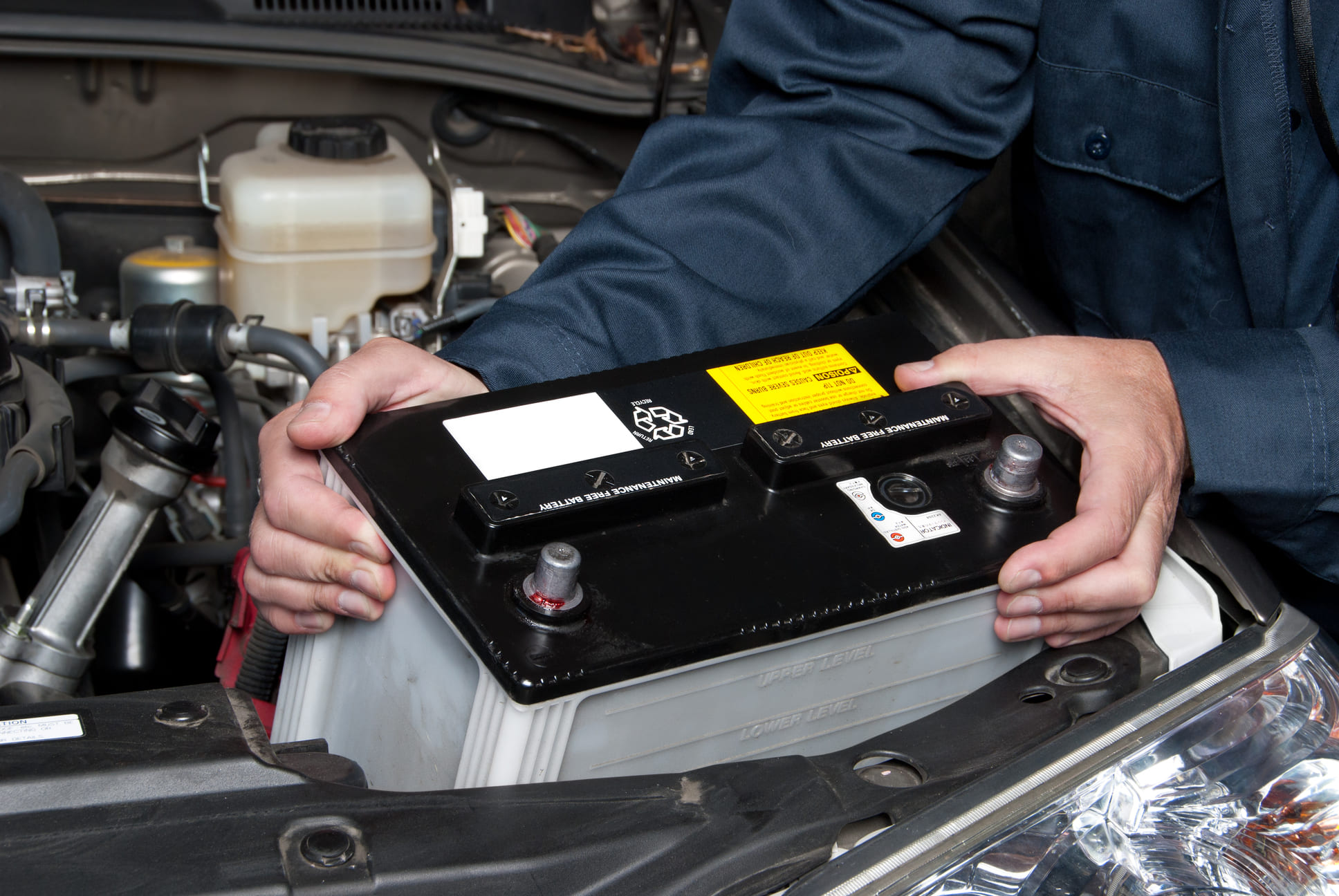Is there anything more disheartening then getting into your car, putting the key in the ignition, and turning it, only to find that the car won’t start? – Made even more stressful if you are in a particular hurry!
And to make matters worse, particularly if you aren’t the most “car-savvy” of people out there, figuring out what to do next is tricky.
If you know that it is time for your car battery to be replaced, the question next is: how do you know what type of car battery you need?
In this article, we’re going to look at the different types of batteries that automobiles use, and answer the question: “does battery size matter in a car?”

How do I know what kind of car battery I need?
How do you know what kind of car battery you need? This information can typically be found in the car owner’s manual. Or indeed, on the manufacturer’s website. However, if you are struggling to figure out what type of car batter you need, your best bet is to consult an expert.
You can either do this by contacting your local garage, or speaking with a reputable car battery dealership.

What type of batteries do automobiles use?
So, what type of batteries do automobiles use? There are a wide variety of car batteries available today, each with their own unique pros and cons. Of course, depending on the model of vehicle you have, the type of battery that you can use will vary.
There are three main car battery designs:
- Flooded battery: Aka, a wet-cell battery, the flooded battery requires topping up with distilled water on the regular
- Valve Regulated Lead Acid (VRLA) battery: the VRLA battery is low-maintenance and sealed which is why you may often hear them being referred to as SLA batteries (sealed led acid). These batteries do not need topping up and won’t spill if in the event that they are tipped over
- Lithium ion battery: For those with a hybrid or electric car, a Lithium ion battery (Li-Ion) are the appropriate design.
Here are the 8 car battery types:
- Flooded led acid battery (wet cell)
- Silver calcium battery
- Enhanced flooded battery (ECB)
- Gel cell batter (dry cell)
- Absorbent glass mat battery (AGM)
- Deep cycle battery
- Lithium ion battery (Li-Ion)
- Nickel metal hydride battery
Does battery size matter in a car?
Contrary to what most people say, size does matter. This is even more prevalent when it comes to car batteries.
You see, what many people don’t realise is that car batteries are not interchangeable. In other words, whilst there are quite a few different types of car battery to choose from, for your particular motor, your options are likely limited.
Size absolutely matters. In fact, the size of your car battery will make a big difference in the way that it functions.
For example, for a small 2-door car, it’s going to need an entirely different type of vehicle battery when compared to a large 10-wheeler truck. Powering such different engines requires a different amount of juice!
So, when you have the correct battery in place sparking the ignition, it’s going to start up much more efficiently and help the motor to operate at its optimal performance, as opposed to a less-suitable battery.
For example, a battery that is too small being installed in a truck won’t provide the necessary power it requires to start at all. Thus, you’ll find yourself with an ignition rolling over and an engine failing to start. Not ideal!
So, not only does the size of the battery affect the overall functionality of your vehicle, but if you try to install a battery that is either too large or too small, then you risk running into a whole host of other frustrating (and potentially expensive) problems.
For example, if the car battery isn’t seated properly, then it will likely be scraping against the metal hood of your car bonnet, thus causing potential short circuits and sparks that may even lead to vehicle fires. Again, not ideal!
Ultimately, choosing a car battery is not an area that can be glossed over. You should consult your vehicle manual before you do anything, so that you can determine the appropriate car battery group size.
If in the event that you have lost your vehicle manual, try contacting the dealership that you brought the car from, or indeed looking up the make and model of the vehicle online and refer to the manufacturer’s website.
Conclusion
How do you know what type of car battery your vehicle needs? Again, consult your vehicle owner’s manual and you should find everything you need to know there. If you are still having trouble and can’t seem to find the information that you need, then get in contact with a reputable car battery dealer such as G7 Battery. Any car battery dealership worth their salt should be able to point you in the right direction and hook you up with the ideal battery with relative ease.



